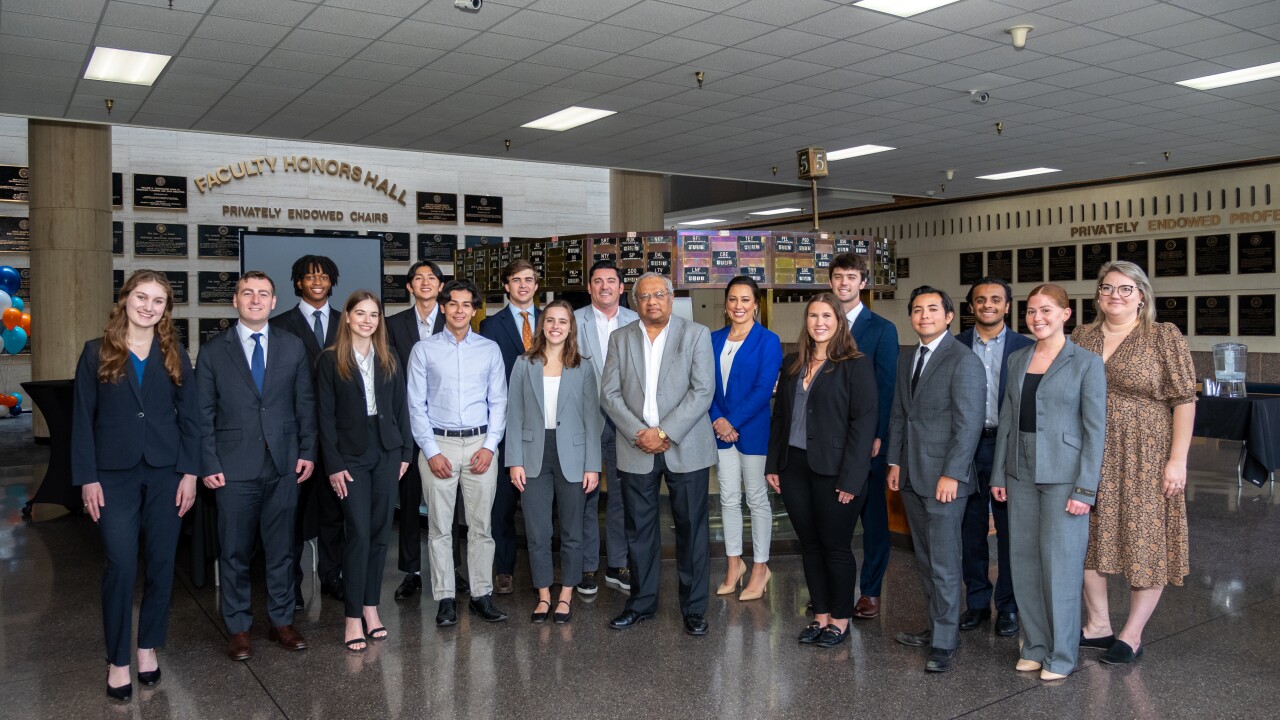Wealth management firms say artificial intelligence could eventually improve nearly every part of their businesses. But when advisors were asked what their firms are doing to get AI ready, the top answer was simple: teaching employees about AI, according to Financial Planning's latest AI readiness survey.
The survey, which asked 250 advisors across the industry about AI readiness at their firms, found that nearly half (44%) are working to educate employees about AI, outpacing efforts to
Top firms are taking the lead on AI education. At LPL Financial and Merrill — together accounting for nearly 1 in 5 active advisors — leadership is rolling out a variety of platforms to help advisors understand how AI can be applied in their day-to-day work and explore its potential.
"Our goal is to get you up to speed as fast as possible on two things," said Inez Louzonis, head of platforms and capabilities at Merrill.
"One, the tools we have now, you need to start using them and becoming proficient in them, and getting your data in them, so that as we are building artificial intelligence on top of these tools, they really benefit you," Louzonis said. "And then the second part is just unlocking their mind to think about all the potentials. We even say to them, 'We can't come up with all of the different use cases and ideas on our own in a box. We need you to start thinking about it.'"
The state of AI education in wealth management
Currently, AI is often being used within wealth firms to streamline routine tasks and cut down on administrative work. For example, LPL has partnered with Jump, an AI assistant designed for financial advisors offering
Stephen Chien, vice president of AI business strategy at LPL, said that these tools not only save advisors 30 to 60 minutes per a meeting, but they also free up advisors to more deeply listen to clients during meetings.
"If they don't have to scribble notes in the middle of a meeting, they can actually pay attention better in the client meeting and deliver a more personalized experience," Chien said. "So it's not just saving time, but delivering a better end-client experience and helping them to grow their business faster."
With a variety of more and less tech-savvy advisors at LPL, Chien said the company takes a wide-ranging approach when it comes to educating its advisors on the AI tools available to them. The basis of that education comes in the form of online modules, which explain the technology, its current uses and
Along with its online modules, LPL has also offered advisors opportunities for Q&A through webinars and breakout sessions at live conferences across the country.
"At the [LPL] Focus conference in August, we had several different AI training breakout sessions for advisors, for their teams," Chien said. "We had about 3,000 advisors and their teams attend those breakout sessions. Really strong attendance, standing-room-only in most cases. It was really good to see that enthusiasm there."
Merrill takes a similarly wide-ranging approach to its AI education, offering online training, webinars, in-person workshops and online open office hours for advisors who want to learn more about an AI tool being offered.
On top of those offerings, Louzonis said a specialized group within her team also goes from market to market, team to team offering one-on-one trainings on new AI tools they're rolling out to help drive adoption. For top advisors at the firm, the team also does bespoke private trainings, Louzonis said.
"We definitely have our FAs that are
Imagining the possibilities for artificial intelligence
Still, firms say the industry is only at the beginning of a much bigger AI wave, one that promises to optimize nearly every aspect of the business. The challenge for firms now is helping advisors imagine what all of those different use cases might look like.
"Getting the use cases out to people, we're more focused there just because the technology is so different," Louzonis said.
One way Merrill does this is through a series of online "best practitioner" sessions, where Louzonis' team collaborates with individual advisors throughout the firm to host the sessions and showcase the various ways they are using AI.
While piloting a new AI tool, Louzonis' team maintains a direct chat with testing advisors where they can share and discuss different use cases. Then, if the tool is rolled out company-wide, those use cases are compiled into a playbook to help inspire other advisors.
"We're kind of creating a feedback loop more than just saying, 'Let's just roll out training.' It's so much more than training, you know. It's creating that feedback loop and getting them to think that way."
Chien said LPL makes similar efforts to source feedback from AI-savvy advisors across the company.
"We have an AI council of advisors that are very tech savvy, and so we hear a lot from them about how they're using AI, and we certainly listen to what they're doing and look to their guidance to help understand how to coach the other advisors along," Chien said.
Survey data shows that just 14% of wealth management firms currently have an
At LPL, members of the AI council not only help inform the content of the online training modules, but they also participate in some of the firm's in-person breakout sessions, allowing them to talk directly to other advisors about how they're using AI in their practices.
"Advisors always enjoy hearing from other advisors …," Chien said. "That really resonated for the advisors to hear from the leading-edge ones about how they were saving time."
Providing those resources can help nudge slower-to-adopt advisors, but Chien said it's also crucial to address legitimate concerns about cybersecurity and trust to drive adoption.
"One of the things that is really important when we vet a tool … is making sure the









